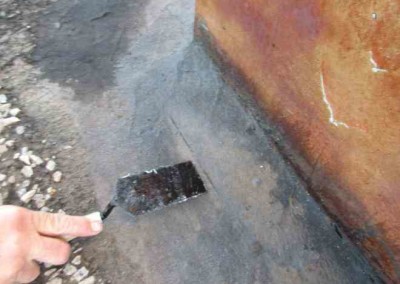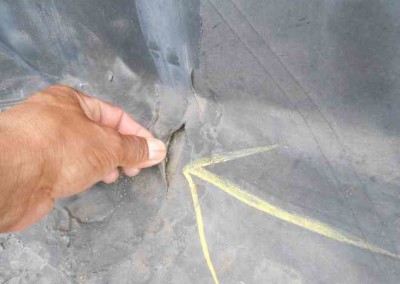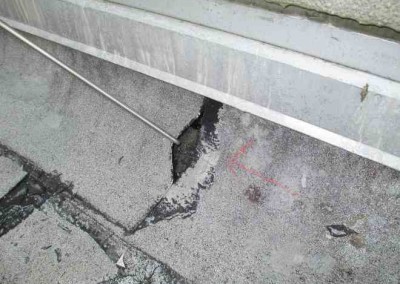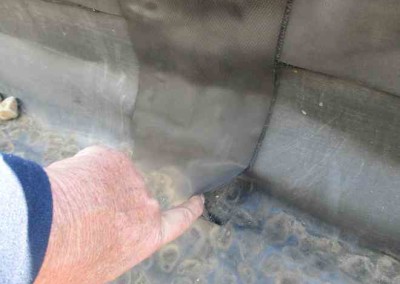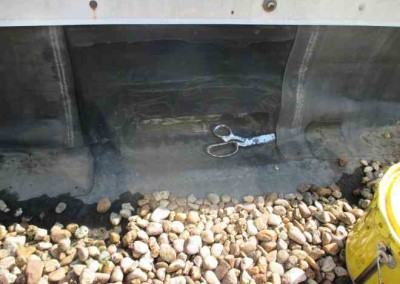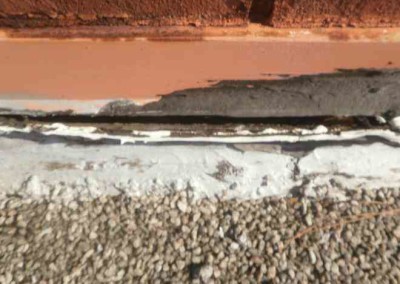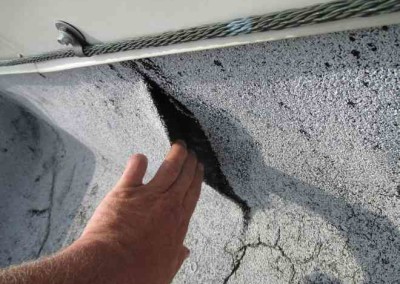Preventative Maintenance
Preventable Common Defects
All roofs have penetrations, which are regarded as the weakest point in any roof and the greatest source of leaks. Commercial roofs are often riddled with penetrations. Heating and air conditioning equipment, utility pipes, conduit, communication equipment, signs, machinery screens, safety railings, and structural steel have created expensive and challenging waterproofing problems for all commercial roofers. Roof top penetrations require maintenance and seldom last as long as the roofing system. Without proper maintenance penetrations can assist in the failing of a roof system. NRCA (National Roofing Contractors Association) and manufacturer’s recommend annual inspections to prevent such issues. A preventive maintenance inspection can detect potential defects and by repairing properly, the owner can ensure a water tight roof.
Save Money in the Long Run
Be proactive with your roof, not reactive! Prolong the life of your roof with proper inspection and preventative maintenance. Preventative maintenance and inspections are recommended by all major manufacturers and the National Roofing Contractors Association. Proper inspections and maintenance can add 30% to 40% of life to your existing roof. MGI Roofing has a comprehensive preventative maintenance program that will assist building owners and engineers to achieve a sound roof.
All roof systems require annual roof inspections and maintenance to achieve long-term service life. Roofs that have been in service for several years can also take advantage of roof maintenance programs, restoring a level of maintainability and increasing the life span.
MGI Roofing offers preventive maintenance programs that will ensure what is necessary to minimize problems that occur due to roof defects, third party damage and natural acts of God, (i.e., sever weather), which will prolong the life of the roof, saving owners thousands in re-roofing cost.
A vital part of the condition of the existing roof system is whether or not the roof is dry from entrapped moisture. This can be easily determined with infrared roof scans. More than 75% to 80% of all roofs lacking a maintenance program fail prematurely and are replaced. Owners should not allow the nuisance of minor leaks to persist and develop into a major problem that will eventually degrade insulation, damaging a large portion of the roof assembly and structural damage, not to mention creating an inconvenience to tenets.
Repair and maintenance work should always be performed by qualified roofing contractors. An owner can help maintain roof systems by ensuring that regular maintenance procedures are performed, such as regularly checking and cleaning of debris from roof system surface and general housekeeping, especially around drains. MGI Roofing stores and keeps all roof records in our data base. Our customers have complete access to their roof records via the use of a unique, individual code we set up for them. Owners should contract with knowledgeable, qualified roofing contractors to set up regular inspections and a roof maintenance schedule. MGI Roofing has a separate division dedicated to roof maintenance and staffed with our most experienced technicians.
Our inspection will include the following:
- Visual roof inspection- including an onsite 50 point inspection regimen
- Photographic, digital and written documentation of the existing roof condition
- Roof drawing noting all penetrations and defects
- Quotes for recommended work
- Repairs for deficient conditions (low, medium, high)
- Upcoming budgets for maintenance, repairs or re-roofing
- Scoring system of the existing roof condition before and after repair maintenance is performed showing the owners life expectancy
- Scheduling future inspections
One of the keys to avoiding roof system damage is limiting access to the roof. An Owner should log all roof access times and dates when other trades are working on the roof in case damage should occur. Only authorize personnel who understand good roof access procedures and precautions to be on the roof. A roof inspection separate from an annual inspection should be performed after any major equipment work is performed. Damage should be reported as soon as it occurs, so that repairs may be scheduled and performed as soon as possible.
Suggestions for implementing roof preventative maintenance programs
- Inspect the roof Bi-annually, preferably in Spring and Fall, and immediately repair any defects that are revealed by a certified roofing contractor.
- Inspect all roofs after severe weather or storms.
- Make frequent inspections on buildings that house manufacturing facilities that evacuate or exhaust debris on to the roof.
- Clean debris from around all roof drains.
- Bag and remove all debris from the roof, because debris left on the roof surface may be swept towards a drain and may clog drains.
- Notify the roofing contractor immediately after a roof leak occurs.
- Note conditions resulting in leakage. Heavy or light rain, wind direction, temperature, and the time of year that the leak occurs are all important facts that help to trace roof leaks.
- Note whether the leak stops shortly after each rain or continues to drip until the roof is dry. All associated facts enable the diagnosis and repair of roof problems to proceed more rapidly.
- Do not allow foot traffic on the roof in very cold or very hot weather because damage may occur.
- If the roof is under a manufacturer’s warranty, do not allow the installation of television or radio antennas, satellite dishes, mechanical equipment or other roof penetrations without notifying the roofing contractor and the membrane manufacturer, and consulting with them about the methods and details for these installations.


